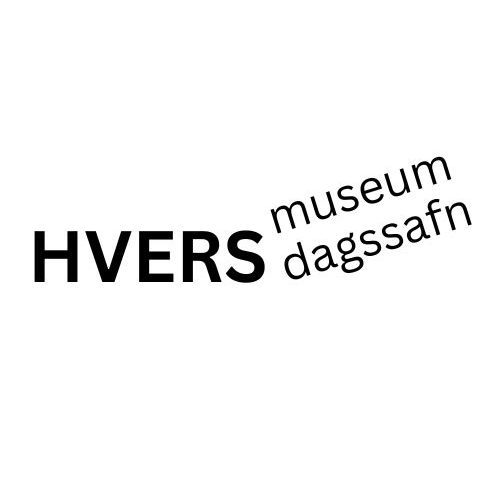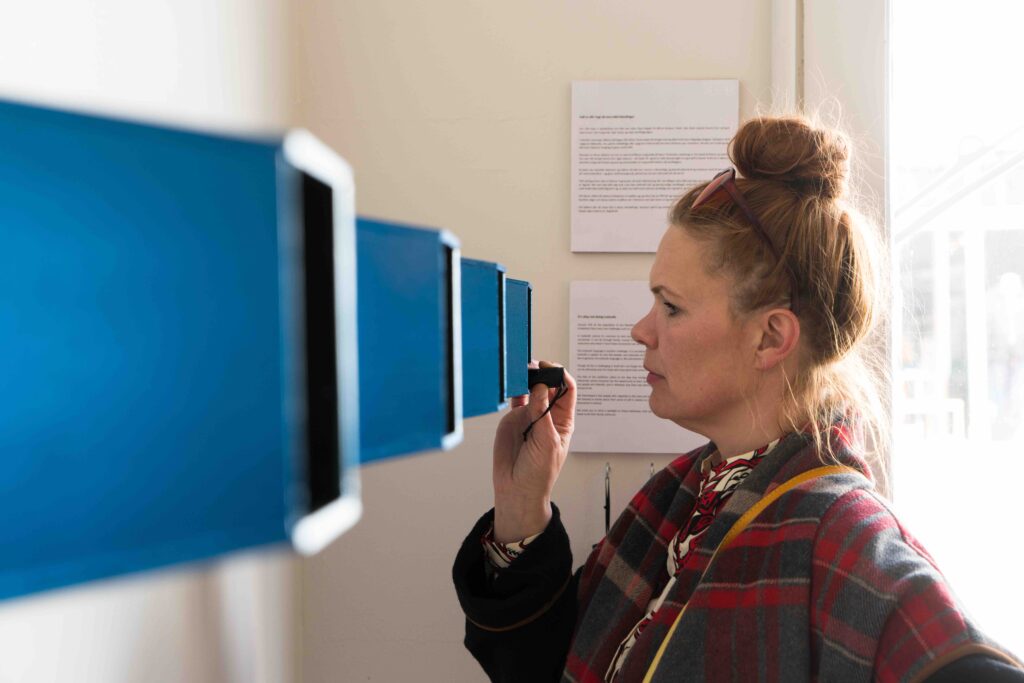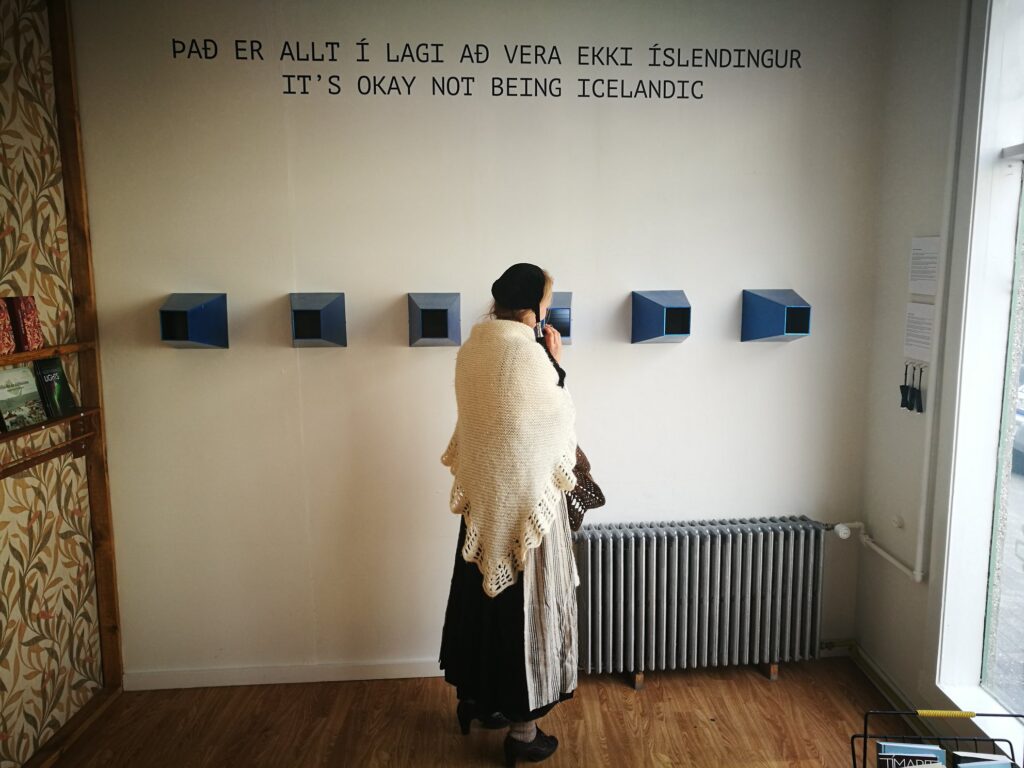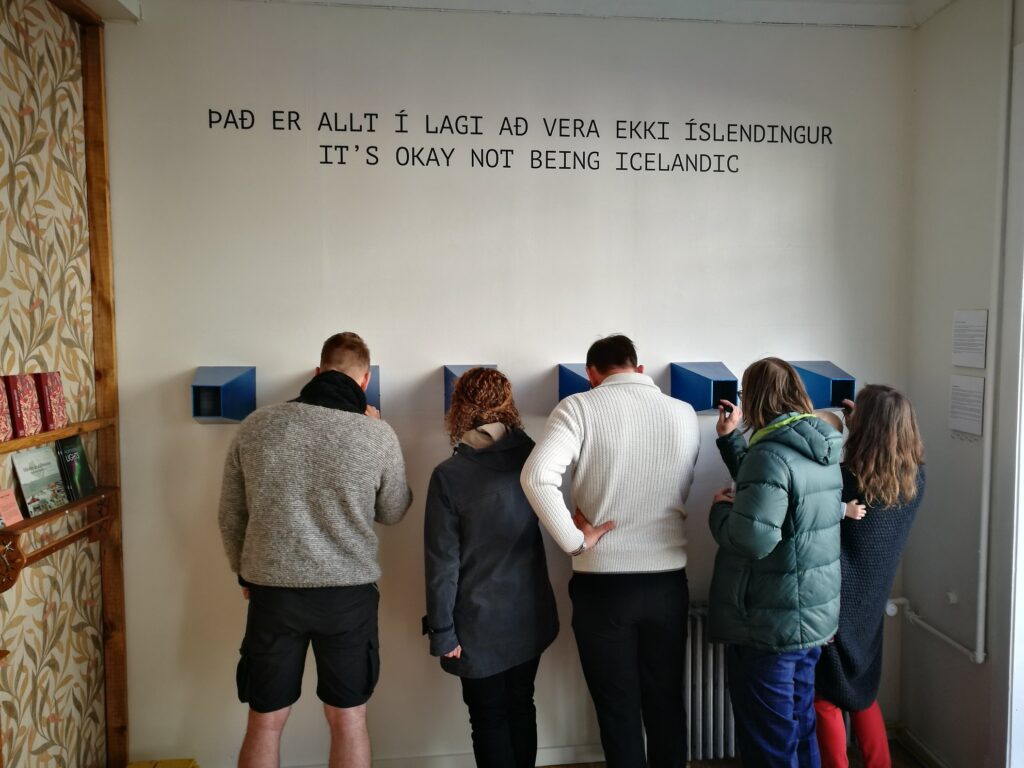It’s Okay Not Being Icelandic
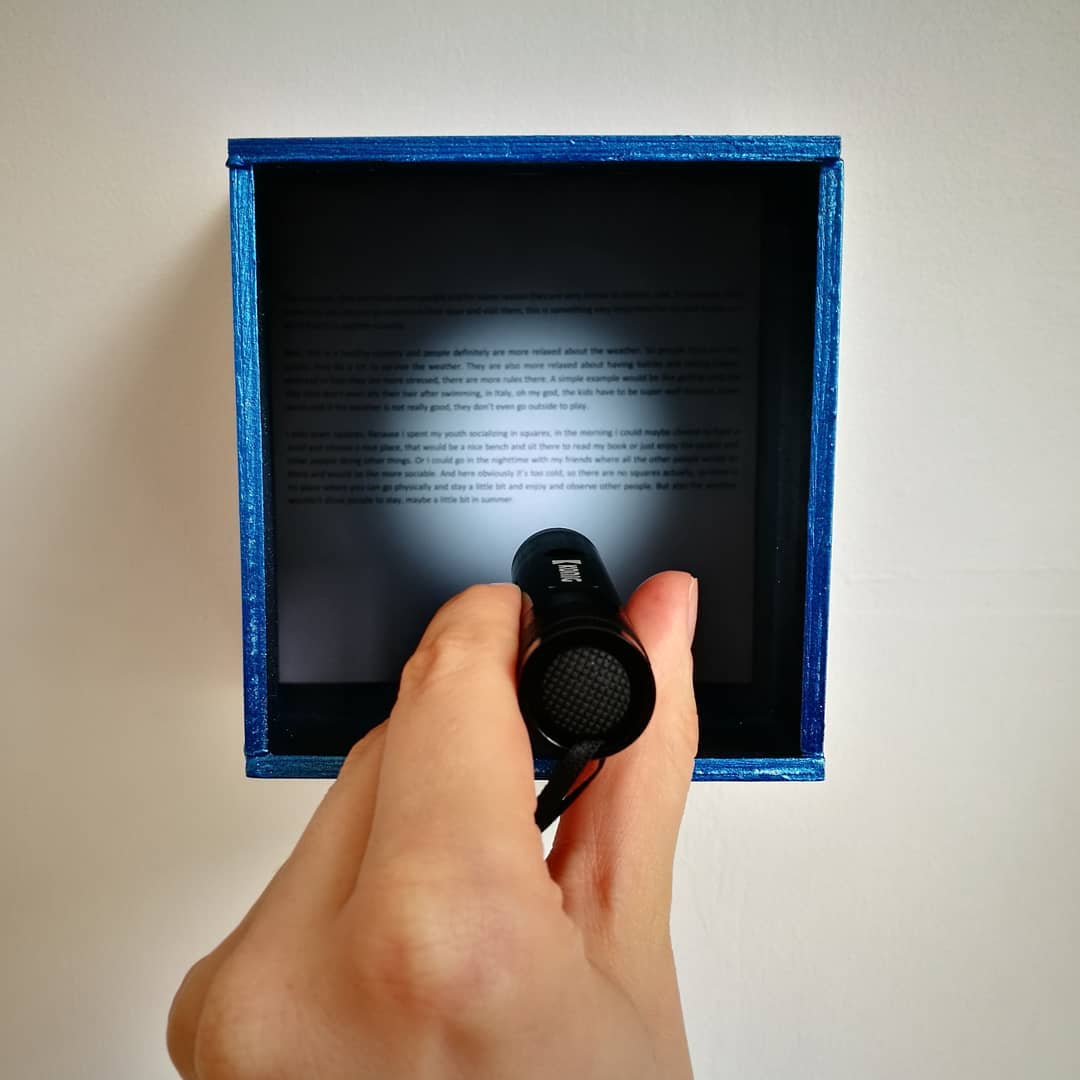
Around 20% of the population of the Westfjords are people who have migrated from other parts of the world. These new inhabitants face many new challenges such as a new language, new customs and new social rules.
In Icelandic culture it’s common to start conversations with people you meet for the first time by seeing how (not if) you are connected. It can be through family, mutual friends, old schoolmates, or whichever other channels open before you. Being a newcomer who doesn’t have these connections can sometimes be challenging.
The Icelandic language is another challenge- it is considered one of the most difficult tongues to acquire. From a global perspective, Icelandic is spoken by very few people, and nationally all measures are taken to protect it from extinction. Even though spoken by few in general, the Icelandic language is, like everywhere else, the key to adapting well to the society.
Though all this is challenging in itself let’s not forget the ever-changing, wild weather and the long hours of winter darkness, which can be alienating even for those who have spent their entire lives here.
The title of this exhibition refers to the idea that immigration is a mutual cultural exchange where diversity is accepted and welcomed, where everyone has the opportunity to learn something new from one another and enrich the community. Whether or not people are Icelandic, and in whatever way they may identify, there is room for them in Icelandic society as they are and as they choose to be.
We interviewed a few people who migrated to this area and asked about their concept of home and what life is like for them here. We listened to stories about their sense of self in relation to the world they came from and the new world they’ve constructed for themselves in Iceland.
We invite you to shine a spotlight on these individuals, their perceptions, and their unique experiences by taking a peek into the boxes to let their stories come out.
Scroll Down to Reveal Migrants’ Stories
I have been working in Germany, Italy, Greece, Holland, and in 2008 I came here with my 9 years old son. I didn’t know anything about the country. I of course knew where it was but I didn’t read anything, I was completely open to discover it, as I had a completely open mind and heart for every country I worked in before.
I was a forty years old woman. In Poland I was too old, too much experienced, and it was very hard to find a job. And in Iceland, nobody asked me how I am old, what I do, what my experience is. Do you want working? Yes. And you have job. It’s always like that, still now, nobody is asking me about my age. And when I hear my friends in Poland they are saying it’s horrible. It’s exactly horrible. It’s a shame for women saying how old they are both because they are thinking no, you are too old and you have too much experience, more than probably the boss. Who wants person who is more experienced than boss? Almost nobody.
All my friends have been always the foreigners. This mechanic, the car mechanic wife, she’s from Norway, my friends from America, after that, I met one from Bulgaria. They are more open, more friendly, or I feel like more friendly, because we were almost on the same level, we are foreigners. And until now, the best of my friends are foreigners, not the Icelandic people. They are nice, friendly, really helpful, but I feel the distance. I think they need more time maybe to be close friends.
There is a big Polish community in Iceland and of course there is some prejudice. So if something is missing, someone steal something especially in Reykjavík, for example it was some group that stole from house to house and what people said? “It was the Polish people!” But in the end it wasn’t Polish.
I cannot say I cut off Poland and my life in Poland, but in every country I made exactly the same, I took a little bit of my culture and theirs. I am not attached to my cultural objects, I’m not that crazy. Of course I have the polish flag, a t-shirt and something else from Poland but I am not so crazy about that.
A little bit of our culture and a little bit of theirs
Too cold to socialize in town squares
The Icelandic, they are really warm people and for some reason they are very similar to Italians. Like, for example, they know that you can just go and knock their door and visit them, this is something very important for me and maybe you don’t find it in other country.
Well, this is a healthy country and people definitely are more relaxed about the weather. So people here are very active, they do a lot to survive the weather. They are also more relaxed about having babies and raising babies, whereas in Italy they are more stressed, there are more rules there. A simple example would be like getting cold, the kids here don’t even dry their hair after swimming, in Italy, oh my god, the kids have to be super well dressed, super warm and if the weather is not really good, they don’t even go outside to play.
I miss town squares. Because I spent my youth socializing in squares, in the morning I could maybe choose to have a stroll and choose a nice place, that would be a nice bench and sit there to read my book or just enjoy the square and other people doing other things. Or I could go in the nighttime with my friends where all the other people would be there and would be like more sociable. And here obviously it’s too cold, so there are no squares actually, so there is no place where you can go physically and stay a little bit and enjoy and observe other people. But also the weather wouldn’t allow people to stay, maybe a little bit in summer.
I was not in a good place. I was looking for a job and they said, oh yes, you are a woman you are thirty plus and you have three kids, hmm, no we can’t hire you. I was living with my mother and I spent almost two years looking for a job everywhere.
I was looking for a place to go and work and live in the whole of Europe but the best places I found, it was Nordic countries, so it was between Iceland or Norway. My friend was here in Iceland and she said, “yes we can help you, just come”, and I thought it was a great idea.
I think coming here to live was a very good thing. The kids are happy and they want to be here all the time, play with their friends, and they don’t even miss that place too much, they just miss my mother.
My mother came for a visit but she did not like it here, because she’s a woman who is fond of big cities, with stores and coffee, so she gets bored here.
I miss my dog but I cannot bring him here, he is already ten years old and he is not really good in his health. But other than that I am pretty fine here.
I think it’s a bit difficult to get into culture or people or this society, not because you don’t want to, it’s because the culture is different. You try to get in and then they say “uh, that’s too much for me” and then you say “okay, not so much”, and then they say “why are you staying so away?”
I think in Spain people are very inquisitive. They ask you everything: how do you feel, what are you doing, how are you? People are very open. They greet you and a minute later we’re friends, but the friendship is not great, it’s like friendship for going out and take a coffee. Here, it’s different. People are very shy. If you don’t see that person in a long time and finally meet them again, they greet you the same as the first time they met you so it might take time to develop a friendship.
Coming here was a good thing
Why not try Iceland?
The story behind us coming here starts in 2006, I lost my job in Lithuania and at the time it was really difficult to find a decent paying job, and my twin brother was living in Ireland. First, I thought of Ireland and then my wife said ‘If we’re going somewhere, why don’t we try Iceland?’’. I had some contacts from my previous projects, some Icelanders. I contacted one guy and he found a job for me in a fish factory.
It was strange. It was also the first country I moved to exclusively to work. The darkness was very strange. You wake up and it’s dark and think you woke up too early and then you realize it’s 10 o’clock – that was really strange, but my goal was basically focus on working. Work and work and do my best. I wanted to prove to myself and others that I’m a good worker.
When we came here we still thought differently, we did things differently, and we still do… but now we kind of adopted a mix of Lithuanian and Icelandic culture. And it’s moving towards more and more Icelandic – thinking, working, and things like that.
I remember when we flew back to Lithuania for holidays, we were visiting family and friends and gradually we started to miss home, miss Iceland. I guess the true sense of home came when we bought our apartment. Now I can see my family on the screen when I’m making a phone call, but of course nothing can beat meetings with family in person. I watch Formula-1 and play some computer games with my brother, it’s part of bonding with my brother because we used to do things together and now he’s in one country and I’m in another. Sometimes we even watch football online. Through the computer it almost feels like we’re together.
Forest. I miss forest. I love forest.
We used to go and pick berries, mushrooms. When we come back for holidays, the first thing I want to do is to find a forest and just walk. On the other hand sometimes it’s really tiring to go back when you have a big family, you have a lot of people to meet and there is not time to relax. We would like to go somewhere else than Lithuania, for holiday.
Ilived in a country of millions of people, and I mean here, it’s just a few people. Just a small village. Not even a shopping center, people here go to the capital to shop.
It was December 5, 1996. I was 20 years old then. I didn’t expect Iceland to be like this, it was a lots of snow and I came in December and I didn’t know how Iceland looks like when I first came here. I was shocked, lots of snow, the wind. I didn’t know that even if it is very bad weather, people are still working. In my country if it’s very bad weather then there are no classes, no work. Especially in winter time it was a little bit depressing, but it was just in the beginning then after some years I was getting used to it. Just, you know, the first three years staying here was a little bit weird.
When I go there for a visit, when the plane lands I’m so happy, but I know I have to go back. I call the Philippines my home and Iceland too, because I have my family here. When I have to come back I’m always down. Probably if I were alone I would not come back.
People are just content with what they have in there. There is no depression there. I mean I know that word, but I haven’t heard that within people. No matter how poor you are in there, still you’re happy. I was content with what I had there. I was halfway through the Bachelor in Computer Science and I had a job so if my mother was not asking my cousin to let me come here, I would not come here. Everybody was saying “Iceland, Iceland.” It was not only my family coming here, it was our neighbours and other families.
When I go to some meetings at the kids’ school I feel I am out of place. Parents get together there and they talk to each other group by group. It’s not the language because I speak Icelandic. They are maybe more connected. I can be there, but you know, it’s boring to be there, just you alone, smiling, nobody to talk to and they are talking two by two, maybe three. If someone in there which is the same as I, a foreigner, then maybe we talk. I sometimes feel like I don’t want to go, I let my husband go.
But what I like here is that it’s peaceful and you can walk alone at night without fear and you can just see a mayor walking down the street or the politicians or actresses or actors going to the supermarket, but in the Philippines you can’t see them, they are in the higher standard. You just don’t go and say “hi” and in here you can say “hi”, you can just talk to the mayor.
From a country of millions to here
Home is somewhere in between
We came to Iceland in 2002. We knew nothing about the country, we just arrived with two suitcases, two girls, and I had two books with me. One was Salka Valka by Halldór Laxness and the other was some kind of Icelandic novel. It was beautiful weather, a little cold, snowy, and barren.
We are not Icelandic citizens. For me it’s like, I will always be an Estonian woman, I will never become Icelandic. I don’t see the point. I don’t feel homesick, I feel very good here and I feel very good there but I don’t know what I would call my home.
I think we are in between and that suits me very well. I don’t want to be that involved in the society, I feel like we are somewhere in between. I really like that. I don’t always have to be here or go there, this is enough freedom for me.
I miss the food, bread for example. I make my own rye bread, there is so much white bread here.
